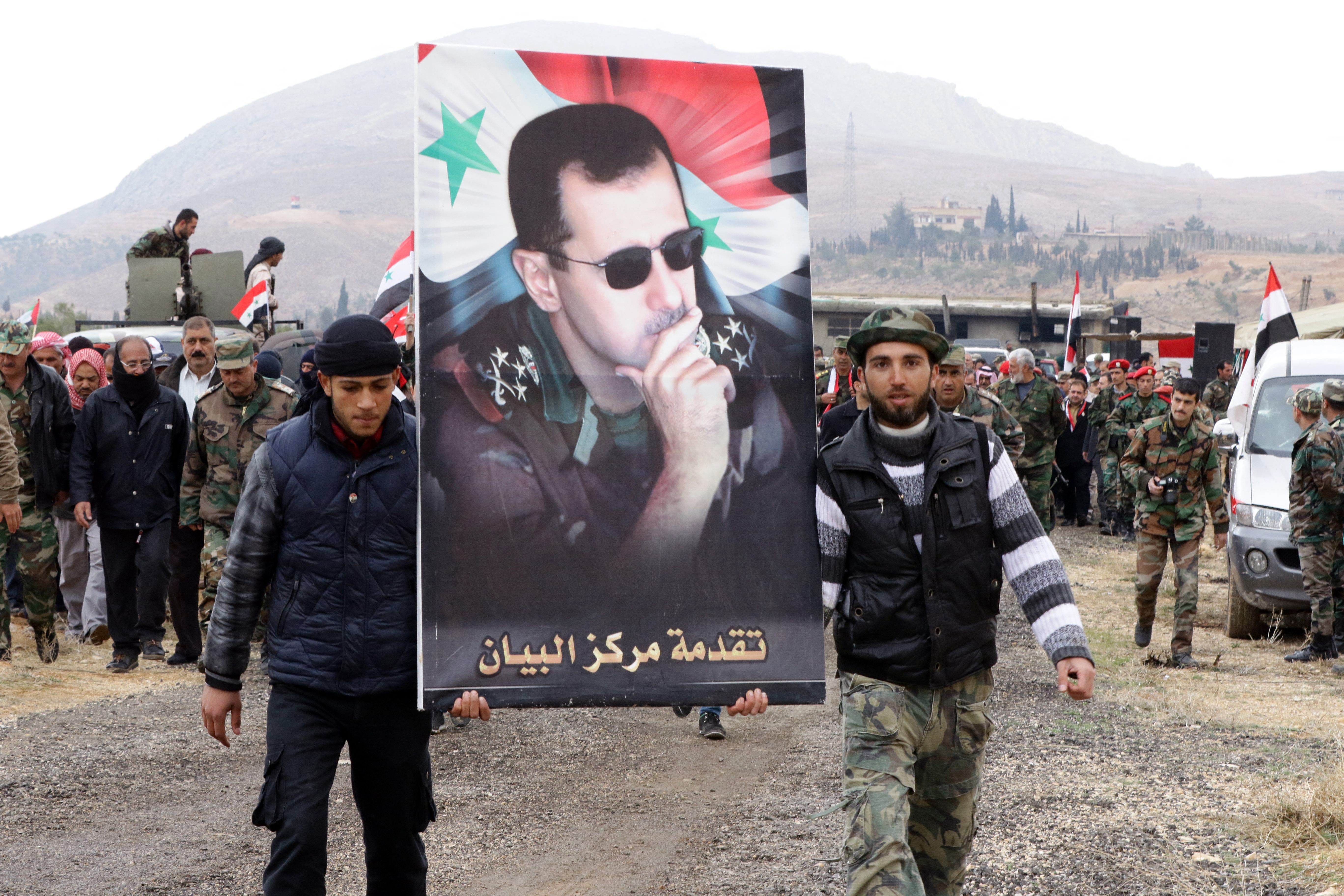The Syrian regime’s well-documented violent suppression of domestic opposition over the past 12 years began with a widespread reliance on loyalist militias when the regular security forces proved insufficient to the task. Syria’s central state played a key role in founding and supporting multiple militia groups beginning in 2011. Yet after bolstering the size and capabilities of these pseudo “non-state” armed groups, the regime reversed course, controlling, merging, and disbanding them in later years. The state’s militia policy has resulted in the growth of symbiotic relationships between the security apparatus and local warlords, producing a complex web of patronage networks tied to illicit economies, international actors, and local politics.
Please join the Middle East Institute (MEI)’s Syria Program for an expert panel to discuss the findings of a new report that documents the evolution and outcomes of the regime’s strategy of founding, relying on, and ultimately absorbing local militia groups.
Speakers
Gregory Waters
Non-Resident Scholar, Middle East Institute; Consultant, International Crisis Group; & Research Analyst, Counter Extremism Project
Kayla Koontz
Researcher, Syrian Archive; PhD Student, Carter School for Peace & Conflict Resolution, George Mason University
Karam Shaar
Non-Resident Senior Fellow, Newlines Institute & Founding Partner, Observatory of Political and Economic Networks
Hari Prasad
Research Associate, Critica Research and Analysis
Charles Lister, moderator
Senior Fellow; Director, Syria & Counterterrorism Programs, Middle East Institute
Detailed Speaker Biographies:
Gregory Waters is a Non-Resident Scholar at the Middle East Institute, a consultant for the International Crisis Group, and a research analyst at the Counter Extremism Project. His research focuses on the Syrian regime's security forces, primarily utilizing open source research to assess the capabilities and structure of the Syrian Arab Army and allied militias. He has also written about local governance initiatives in opposition, Turkish, and regime-held Syria and tracks Islamic State developments in central Syria. Gregory also works as a research analyst at the Counter Extremism Project, where he writes reports primarily on Syrian and Iraqi extremist groups. He has previously been published by the Atlantic Council, Bellingcat, and openDemocracy, and currently writes about Syria for the International Review.
Kayla Koontz is a recent graduate from UC Berkeley’s Global Studies MA Program and former researcher at the UC Berkeley Human Rights Center. She received her B.A. in International Relations with a minor in Middle Eastern and Islamic Studies from San Francisco State University in 2016. She has studied and worked in Turkey and her past research has focused on Kurdish insurgent groups and Turkish foreign policy.
Karam Shaar is a political economist and non-resident senior fellow at Newlines Institute. In addition to his work at Newlines, Dr. Shaar is a consultant on Syria’s political economy and an establishing partner at the Observatory of Political and Economic Networks. His work focuses on macroeconomics, aid economics, sanctions, energy, actor mapping, and illicit economies. He previously was a non-resident scholar at the Middle East Institute, the research director of the Operations and Policy Center, a senior analyst at the New Zealand Treasury, and a senior lecturer on Middle East politics. Karam’s work on Syria has been published in the Middle East Institute, Foreign Policy, the Carnegie Foundation, The Guardian, the Brookings Institution, and the Center for Strategic and International Studies. He’s a frequent media contributor and has been interviewed, quoted, or hosted by The Washington Post, CNN, the Sunday Times, Aljazeera, BBC, The New York Times, Chatham House, the Brookings Institution, University of Oxford, and the United Nations, among others.
Hari Prasad's research focuses on Middle Eastern and South Asian politics, with a concentration on the role of armed actors and religious politics. He has been associated with the Hudson Institute, the United States Institute of Peace, and the Stimson Center where he covered issues from Indian foreign policy, militancy, the treatment of religious minorities, and economic reforms. Prasad has conducted research in the United States, Lebanon, Palestine, Jordan, Ghana, and India. He is published in The Diplomat, Foreign Policy, The Wire (India), The New Arab, and in Current Trends in Islamist Ideology.
Charles Lister is a senior fellow and the Director of the Syria and Countering Terrorism & Extremism programs at the Middle East Institute. His work focuses primarily on all-things Syria and on issues of terrorism and insurgency across the Levant. Prior to joining MEI, Lister was a Visiting Fellow at the Brookings Institution in Qatar and a Senior Consultant to the multinationally-backed Syria Track II Dialogue Initiative, in which he managed nearly three years of intensive face-to-face engagement with the leaderships of over 100 Syrian armed opposition groups. Lister is a frequent source of briefings on Syria to political, military and intelligence leaderships in the United States and across Europe and the Middle East. He has previously held other positions at the Brookings Institution and at IHS Jane’s in London, UK. Lister is a Consultant to the United Nations' International, Impartial and Independent Mechanism (IIIM) for Syria and a regular consultant and expert witness in counter-terrorism prosecutions and with law enforcement bodies in the United States, Europe and Australia. He has also testified to congressional and parliamentary bodies in the U.S., United Kingdom and the Netherlands.
Photo by LOUAI BESHARA/AFP via Getty Images












